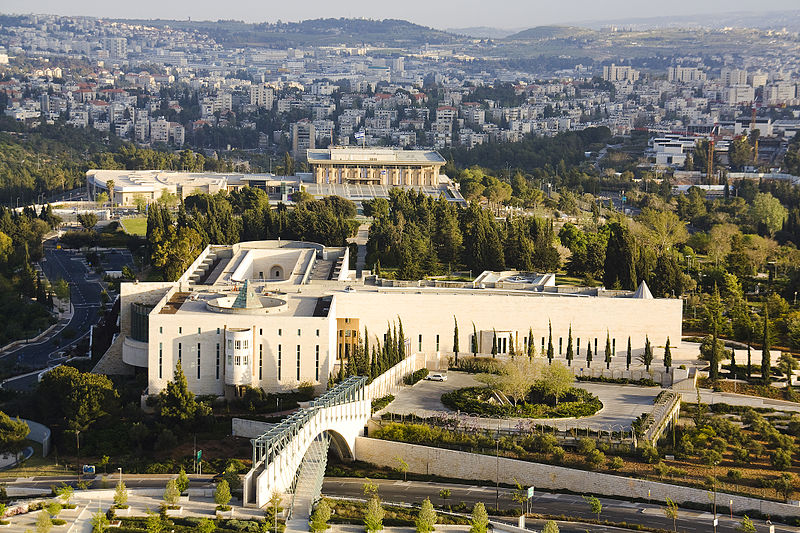If the court will rule that its authority is above basic laws, Israel will be the only county in the world where a constitutional system is led by a court placing itself, without any authority, above the constitution, and effectively pronouncing that there are no limits to its powers
The Israeli political opposition uses every means at its disposal to fight any aspect of the judicial reform plan promoted by the government. This is evidence of the robustness of the Israeli democracy, which allows for powerful civil activism almost fully and and for passionate freedom of speech.
One of the manifestations of the opposition’s struggle is a long list of petitions to the Supreme Court regarding the amendment to Basic Law: The Judiciary, which the Knesset approved in July. This change limits the ability of any court in Israel to rule against the government or its ministers in cases where the verdict is based solely on a court’s view that a decision made by the government or a minister is “unreasonable”.
Over the past few decades, the “reasonableness” grounds have developed in Israeli Administrative Law to an unprecedented degree, when compared to the rest of the world, including other Common Law systems. This new grounds allows the court to nullify any decision made by state agencies, even if it was made legally and with authority, is free of conflict of interests or other irrelevant considerations – only because the court thinks that the decision is “unreasonable”.
There are no other examples around the world of the courts wielding this kind of authority. Indeed, despite the existence of the term “reasonableness” in other legal systems, this does not carry the same meaning it does in Israel. In other countries courts interfere with decisions made by authorities only in very extreme cases when decisions are deemed “capricious and arbitrary”, or when damage to human and property rights is disproportionate. At best, courts strike down such decisions only in cases where authorities have ignored a very crucial consideration when making the decision in question.
Reasonableness in Israel, on the other hand, allows the courts to interfere in any decision, even decisions on the appointment of officials which are well within the government’s mandate. Therefore, after many years of robust debate about this issue in the academia and the judiciary system, this government decided to amend Basic Law: The Judiciary, and to limit the use of the clause in cases concerning the government and ministers, the most senior elected officials in the executive branch. The government decided also that reasonableness cannot be used as a sole anchor for rulings in cases concerning lower-ranking officials.
Today, opponents of this amendment are protesting with increasingly harsh rhetoric. They claim this change will encourage corruption, since the government will be free to appoint or dismiss anyone it wants in the judiciary, without any judicial review. Opponents also claim the amended law will endanger IDF soldiers, as international bodies will lose their faith in the objectivity of the army’s law enforcement mechanisms. Another claim is that the government will have no limits and will be able to do as it pleases, with no oversight.
This is mere hyperbole. Other countries manage to live very well without the kind of activist judicial review we see in Israel. In other countries, the government nominates the general prosecutor and chief army prosecutor with no judicial oversight, and this does not detract from the independence of the court system.
However, the hearing tomorrow in the Supreme Court is extraordinary also for another reason: Petitioners are asking the court to declare itself authorized to strike down a basic law approved by the Knesset. The Supreme Court itself ruled, thirty years ago, that basic laws enjoy constitutional status, despite Israel having no formal constitution. Furthermore, this ruling regarding the special status of basic laws served as the Court’s justification for striking down regular laws.
If the court will rule that its authority is above basic laws, Israel will be the only county in the world where a constitutional system is led by a court placing itself, without any authority, above the constitution, and effectively pronouncing that there are no limits to its powers. There is no precedent for this anywhere else in the world, not to mention in other countries without a complete and official constitution.
As I said before, today’s Israel is a very vibrant, liberal and strong democracy. But if the court will position itself on a rung above everything it has considered in past rulings as being constitutional, this might damage the most basic foundation of a democratic state: The normative power of the people to decide their own fate, by electing their representatives to the government.
First published at JPC – Jerusalem Press Club under the title: “Op-ed: What is unique about the Supreme Court debate on the reasonableness clause?”




